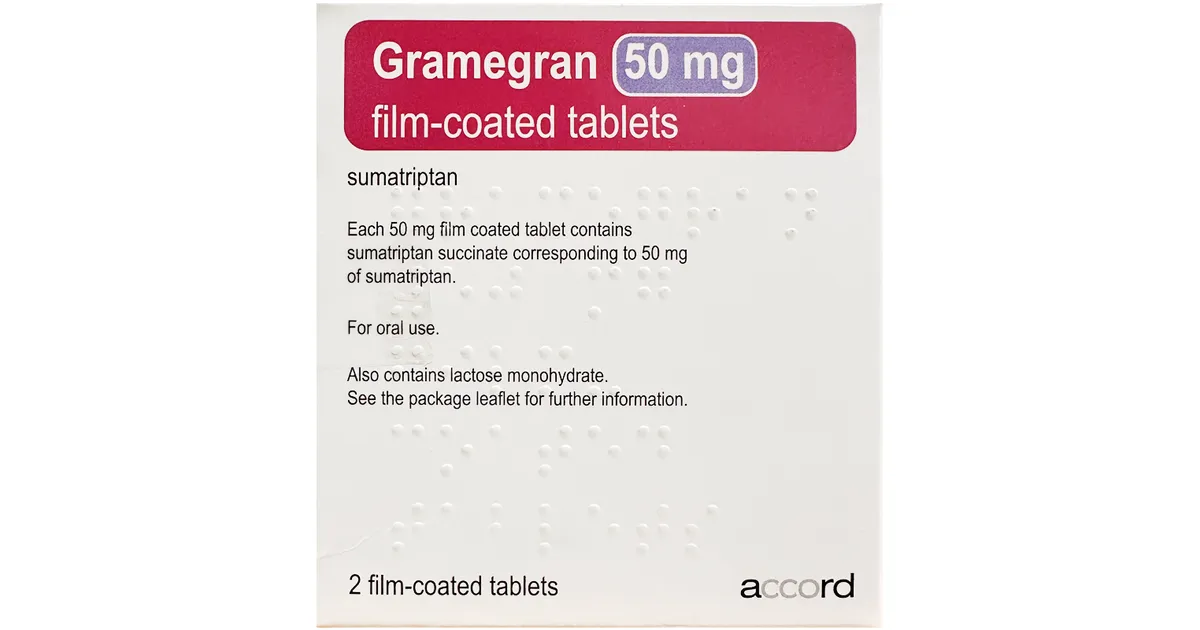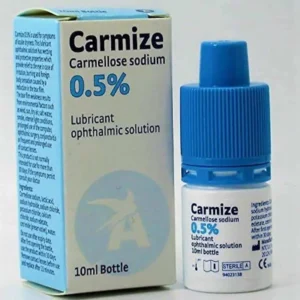Gramegran Sumatriptan 50mg Migraine Tablets 2s
Each Gramegran capsule-shaped tablet contains a single dose of sumatriptan 50mg, which belongs to a group of medicines called triptans (also known as 5-HT1 receptor agonists) which is
used to treat migraine headache. Migraine symptoms may be caused by the temporary widening of blood vessels in the head. Gramegran is believed to reduce the widening of these blood vessels. This in turn helps to take away the headache and relieve other symptoms of a migraine attack, such as feeling or being sick (nausea or vomiting) and sensitivity to light and sound.
£7.99
Description
Active Ingredient: Sumatriptan 50mg
Indication: Treatment of migraines
Dosage: Adults aged 18 to 65 years – Take one tablet as soon as possible at the first signs of a migraine headache.
If your symptoms start to come back, you can take a second tablet after 2 hours. You must leave at least 2 hours after the first tablet.
Swallow each tablet whole with water.
Do not take more than two tablets in 24 hours and do not take more than two tablets for the same attack. If the first tablet does not provide any relief, do not take a second tablet.
If you take Gramegran too often, it may make your headaches worse. If this happens you should consult your doctor or pharmacist, who may tell you to stop taking Gramegran.
You should wait at least 24 hours before taking a medicine containing a triptan (including other sumatriptan-containing products, zolmitriptan, rizatriptan, naratriptan) or at least 6 hours before taking a medicine containing ergotamine or methysergide.
Talk to your doctor before you take any more Gramegran. Getting no relief at all from Gramegran may mean that you do not have migraine.
Gramegran is only to relieve migraine symptoms.
Do not take it to try to prevent an attack. Don’t take it until you are sure it’s a migraine and not just a headache.
Warnings:
If you experience chest pain, tightness, or pressure (especially if it spreads to your neck, jaw, or shoulder), seek medical attention immediately.
Do not use Gramegran if you have a history of heart disease, stroke, or certain other conditions.
Avoid Gramegran if you’re taking other medications containing ergotamine or similar compounds.
Side Effects:
Common side effects include dizziness, fatigue, and nausea.
Uncommon side effects may include chest discomfort, shortness of breath, or skin reactions.
Report any side effects to your doctor or pharmacist.
Interactions:
Inform your healthcare provider about all medications you’re taking, including herbal supplements.
Gramegran may interact with other migraine medications or antidepressants.
Safety Measures:
Always follow the recommended dosage.
Report any adverse effects to your healthcare professional.
Keep out of reach of children.
Remember, if you experience any unusual symptoms, consult your doctor promptly. For more information, refer to the Patient Information Leaflet included with the packaging.





